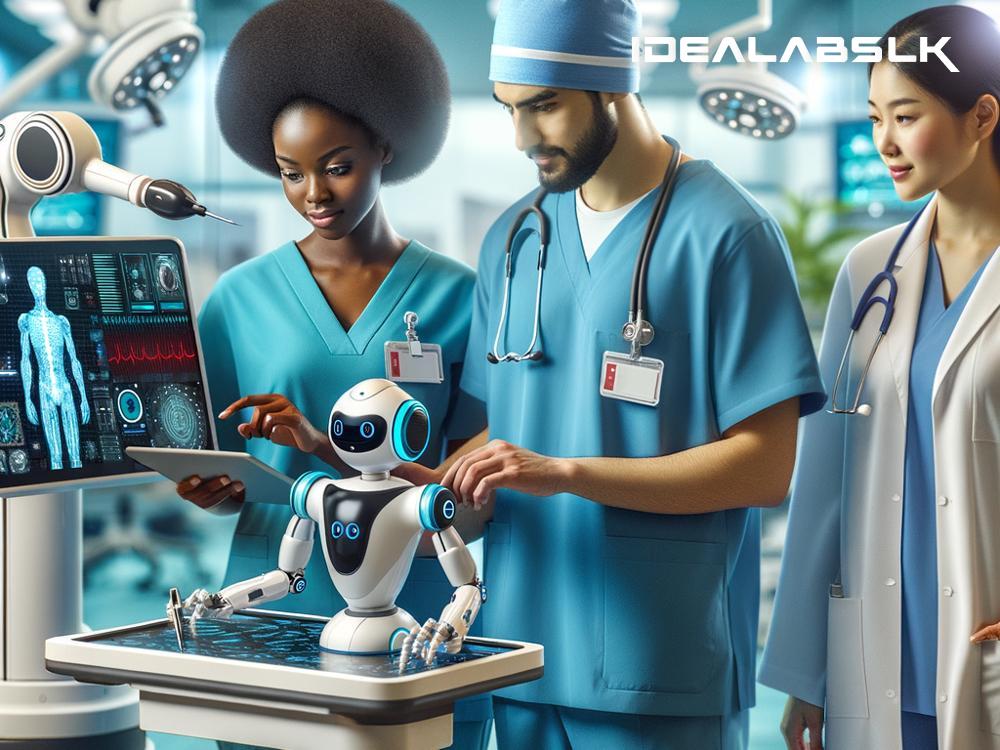The Role of Technology in Managing Healthcare Workforce: Automation and AI in Hospitals
In the bustling world of healthcare, where every second counts, technology plays a crucial role in making things smoother and faster. From the nurse checking on patients to the doctor performing surgeries, technology is there, making their jobs easier so they can focus on what matters most: the patient. One of the most significant leaps forward in healthcare is the integration of automation and Artificial Intelligence (AI) into hospitals. But what exactly does this mean? Let's dive into the role of technology, specifically automation and AI, in managing the healthcare workforce.
Automation: More Than Just Robots
When we talk about automation in healthcare, it's not just about robots roaming the halls of hospitals. It's about simplifying tasks that used to take up a lot of time. For instance, administrative tasks like scheduling appointments, managing patients' records, and even dispensing medication are now faster and more accurate thanks to automation. This shift allows healthcare professionals to spend more time with their patients, leading to better care.
One exciting area of automation is in patient monitoring. Devices can now automatically check and record vital signs, alerting nurses and doctors immediately if there's a problem. This means that patients are constantly monitored without a healthcare worker having to be by their side every second, making it easier to catch and treat complications early.
Artificial Intelligence (AI): A Smart Assistant in Healthcare
AI in healthcare is like having a super-smart assistant who never gets tired. AI can analyze massive amounts of data quickly, helping doctors diagnose diseases faster and with more accuracy. It can sift through patient records, medical studies, and other vital data to provide doctors with information that could be crucial to treating a patient. This capability is a game-changer in making diagnoses and choosing the best treatment plans.
Moreover, AI is used in predictive analytics to forecast potential staffing needs. By analyzing trends, patient influx, and other factors, hospitals can predict busier times and prepare by scheduling more staff or opening more wards. This ensures that patient care is not compromised due to a lack of resources.
AI is not replacing doctors or nurses; instead, it's providing them with tools to make better-informed decisions and to focus their skills where they're most needed - on the human aspect of healthcare.
The Benefits of Automation and AI in Healthcare
The integration of automation and AI in hospitals brings numerous benefits. Here are a few:
- Increased Efficiency: Automating routine tasks and leveraging AI for data analysis reduces the time spent on administrative duties, allowing healthcare workers to dedicate more time to patient care.
- Enhanced Patient Safety: With continuous monitoring and advanced diagnostic tools, healthcare providers can identify and address complications or illnesses much earlier, improving patient outcomes.
- Better Resource Management: Predictive analytics helps in optimal staffing and resource allocation, ensuring that the hospital can provide high-quality care even during peak periods.
- Saved Costs: Although implementing these technologies requires an initial investment, in the long run, they can save hospitals money by optimizing operations and reducing errors.
Embracing the Future
The integration of automation and AI in managing the healthcare workforce is not without its challenges. Concerns about job displacement, privacy, and data security are valid and need addressing. However, the potential benefits for patient care and operational efficiency are too significant to ignore.
Training and education are crucial in this transition. Healthcare workers need to understand how to work alongside these technologies and leverage them to improve patient care. It's not about replacing human capabilities but augmenting them.
In conclusion, the role of technology, particularly automation, and AI in hospitals, is transformative. It offers an opportunity to enhance patient care, improve efficiency, and manage the healthcare workforce more effectively. While this journey is complex and ongoing, the destination—a future where technology and human touch work hand in hand to deliver exceptional healthcare—is undoubtedly worth the effort. The healthcare industry's embrace of these technologies today will shape the future of patient care for generations to come.

